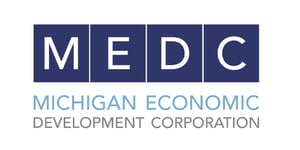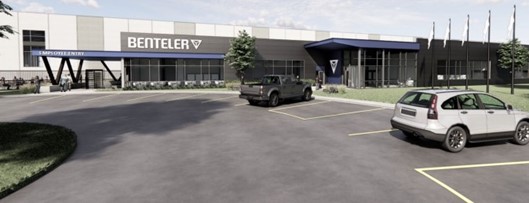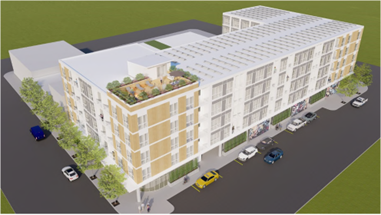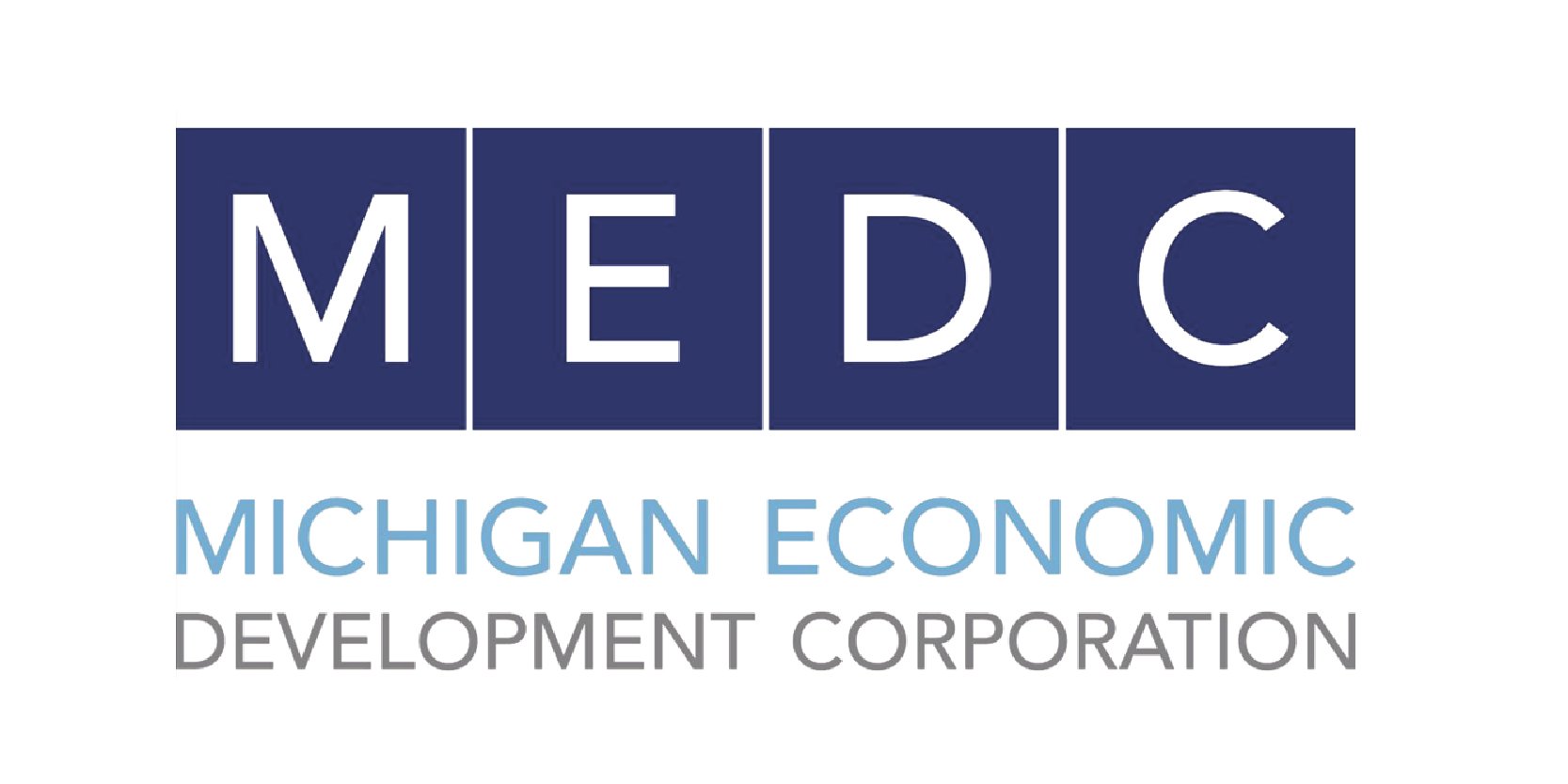
Final Board meeting secures combined $1.8 billion in capital investments, creates and retains more than 3,300 jobs
LANSING, Mich. – Tuesday, the Michigan Strategic Fund (MSF) Board voted to support the creation or expansion of six businesses and nearly 150 units of housing through investments planned for communities in six counties across Michigan.
“These investments will create and retain more than 3,300 good-paying jobs, build nearly 150 units of housing to expand supply and lower costs, and drive more than $1.8 billion of investment directly into communities across Michigan,” said Governor Gretchen Whitmer. “I am so grateful to all the employers choosing to ‘make it’ in Michigan so we can continue leading the future of advanced manufacturing. Today’s projects will also tackle housing, a top-of-mind concern for Michiganders, especially with rising rents and mortgage payments. We need to keep building more housing and creating more good jobs so everyone has a place to live, fulfilling work to do, and a great quality of life. Let’s keep getting it done.”
Combined, the seven projects will create more than 1,300 jobs, retain more than 2,000, and secure up to $1.8 billion in investment for communities in Wayne, Washtenaw, Oakland, Kent, and Kalamazoo counties. These figures include two projects receiving approval for Strategic Outreach and Attraction Reserve (SOAR) Fund support that will provide an estimated $1.5 billion in investment alone.
“I’m grateful for the work of the Michigan Strategic Fund Board and everyone working in and with the Michigan Economic Development Corporation (MEDC) to support the 10 million-plus friends and family across two peninsulas in our great state. Today, and each day, we endeavor to create the jobs and opportunities that lay the foundation for thriving communities and provide the revenue for vital public services without increasing the tax burden on individual Michiganders,” said Quentin L. Messer, Jr., CEO of the MEDC and Chair of the MSF Board. “There is truly nothing that can stop Michigan when we all rally behind a common vision of success, and I’m grateful to be a part of Team Michigan alongside Governor Whitmer, the state Legislature, other state agencies, all our local partners and growth advocates, and most importantly, the risk-takers and dream-makers that make it happen.”
BENTELER AUTOMOTIVE CHOOSES KENT COUNTY FOR BATTERY COMPONENTS FACTORY
Overview: German company BENTELER Automotive received MSF support of up to $1.4 million in Michigan Business Development Program (MBDP) performance-based grant funds to build a new battery components assembly plant in the City of Wyoming (Kent County). The company plans to invest up to $105 million and create up to 147 new jobs to produce a motor brace and battery tray for an all-new electric transit vehicle for a major U.S. automotive company.
“We are convinced of the positive development of the U.S. automotive market. Accordingly, we are very much looking forward to opening our new plant in Grand Rapids,” said Emerson Galina, President Americas of the BENTELER Automotive Components Division. “From here, we will continue to drive the transformation to e-mobility for our customers with innovative solutions.”
The project is also receiving support from a Brownfield TIF in the amount of $1.57 million total ($395,142 from the State) to ready the site for redevelopment.

Why It Matters: Benteler only has six U.S. facilities – three of which are already in Michigan (headquarters in Auburn Hills and facilities in Grand Rapids and Holland each). By rehabilitating and bringing back to life the former General Motors stamping plant that has been closed since 2009, the company shows its confidence in the promise and capabilities that Michigan – and its residents – has to offer.
“BENTELER recognizes that the Grand Rapids region plays a central role in its U.S. growth strategy, and the Site 36 property is an ideal location for them, so this is great news all around,” said Brent Case, Vice President of Business Development at The Right Place. “BENTELER continues to drive innovation in the EV components industry so it will be exciting to see what comes from this new plant.”
For more information on the company, visit BENTELER’s website.
HOWMET AEROSPACE BOLSTERS STATE AS GROWING LEADER IN AEROSPACE WITH EXPANSION IN MUSKEGON COUNTY
Overview: Howmet Aerospace, a manufacturer of components for jet engines and industrial gas turbines, will expand its City of Whitehall (Muskegon County) location by constructing a new building to house ceramic core production. Ceramic cores are used in the manufacture of various aero engine components.
The MSF approved a $5.1 million Michigan Business Development Program (MBDP) performance-based grant as well as a 15-year State Essential Services Act (SESA) exemption valued at up to $1.6 million for the project that will create up to 300 new jobs and provide up to $107.5 million in private investment.
“Our partners at the Michigan Economic Development Corporation have played an integral role in the success of Howmet Aerospace’s operations in Western Michigan,” Merrick Murphy, President of Engine Products, said. “We’re so very proud of these longstanding relationships that have enabled us to grow and prosper in over the past several decades. Howmet Aerospace is grateful for the support of our state, local and regional partners who have been consistent and longstanding advocates for each investment we’ve made in the Whitehall community.”
Why It Matters: The expansion builds on the strong market demand for Howmet Aerospace engine products while securing a significant win for the Whitehall community – especially given Howmet’s consideration of other sites in the United States. The jobs associated with this project will be above the Regional Median Wage of $21.97 per hour by starting instead at $24.27 per hour for production workers. For more information on this opportunity, visit the company’s website.
“The City of Whitehall is honored that Howmet Aerospace has chosen our community for the location of a new, advanced technology ceramic core manufacturing facility,” said Whitehall Mayor Steve Salter. “The significant financial investment and job creation is testament to the decade’s long partnership between Howmet and the City.”
HTC GLOBAL SERVICES INC., EXPANDS IN OAKLAND COUNTY
Overview: Michigan-based HTC Global secured MSF Board approval for a $1.52 million Michigan Business Development Program (MBDP) performance-based grant to expand its operations in artificial intelligence and machine learning solutions to meet growing market demand in the numerous industries, which include automotive, banking, financial services, insurance, healthcare, and the public sector. The project will create up to 190 new jobs and will invest at least $5.69 million in the City of Troy (Oakland County).
“Troy is pleased to support HTC Global Services,” said Troy Mayor Ethan Baker. “HTC is a leading software and technology consulting firm headquartered in Troy. HTC was considering other states and countries for this expansion, but Troy’s educated workforce, outstanding housing, retail, and restaurants are factors that technology and software firms look for to attract talent, and the City of Troy meets those metrics.”
Why It Matters: Jobs associated with this project will pay an average annual salary of $72,000 plus benefits, which equates to significantly higher than the Regional Median Wage of $23.73 per hour. Additionally, as a global company operating in 15 countries and growing, such an investment reinforces Michigan as an ideal place to do business across a wide variety of industries. For more information on this opportunity, visit the company’s website.
LANDSCAPE FORMS, INC., OPENS NEW FACILITY IN KALAMAZOO COUNTY
Overview: Landscape Forms, Inc., which creates well-designed furniture for outdoor spaces, will construct a new facility to expand its manufacturing capacity in Michigan adjacent to their existing operations in Comstock Township (Kalamazoo County). The company is heavily invested in its employees and has been recognized for providing benefits such as an in-house certified welding academy and state-certified apprenticeship programs for machinists and industrial maintenance.
The company received MSF approval for a $2.5 million MBDP performance-based grant, will create at least 125 new jobs and expects to invest at least $70 million.
“Landscape Forms has been a Michigan-based company since its inception over 55 years ago. We value our partnership with the State of Michigan as the support provided was pivotal in our decision to expand our campus in Comstock Twp./Kalamazoo,” said CEO Marjorie Simmons. “The new state of the art, sustainable manufacturing facility will allow us to attract and retain top manufacturing talent in Michigan to support our future growth.”
Why It Matters: The proposed project will deliver immediate job creation, contributing to the local regional economy and diversifying the state’s portfolio by investing in the growing industry of Outdoor Recreation. Further, the company’s commitment to its employees provides them and Michigan with a pipeline of talent ensuring they and their families continue to call Michigan home. For more information on this opportunity, visit the company’s website.
MSF PRIORITIZES SUPPORT FOR HOUSING IN GRAND RAPIDS
The Michigan Strategic Fund (MSF) Board on Tuesday also approved Michigan Community Revitalization Program (MCRP) performance-based loans to a project in Grand Rapids (Kent County).

Talbot Bridge, LLC, plans to rehabilitate a dilapidated, vacant former grocery store expects to be transformed into a five-story, mixed-use project including 148 residential units and 1,500 square feet of ground floor commercial space at 648 Bridge Street in Grand Rapids – between Douglas Park and the Bridge Street Market – with MSF-approved support of a MCRP performance-based loan up to $5.95 million.
Why It Matters: The project expects to be an all-electric building, including heat pump HVAC, solar panels and ample EV charging, and will be an overall capital investment of $31.7 million. The development – which also expects to include a fitness center, lounge, rooftop deck, and more – also received approval for Act 381 eligible activities valued at up to $2.2 million. Act 381 of 1996, also known as the Brownfield Redevelopment Financing Act, allows for eligible local and school tax revenues to be captured and used to reduce the cost of redeveloping brownfield properties.
“The vibrant Bridge Street corridor is an ideal location for a new, innovative, transit oriented, sustainable multifamily community like this. Grand Rapids is a growing, youthful city with a huge unmet demand for housing, but the costs of financing and construction make new projects impossible on their own,” said Ryan Talbot, owner of Talbot Development. “I am therefore immensely grateful for the support of the MEDC and MSF to enable this project to both alleviate a little bit of Grand Rapids’ housing shortage as well as continue to fuel the growth of this amazing part of the city.”
About Michigan Economic Development Corporation (MEDC)
The Michigan Economic Development Corporation is the state’s marketing arm and lead advocate for business development, job awareness and community development with the focus on growing Michigan’s economy. For more information on the MEDC and our initiatives, visit www.MichiganBusiness.org. For Pure Michigan® tourism information, your trip begins at www.michigan.org. Join the conversation on: Facebook Instagram LinkedIn, and Twitter.















